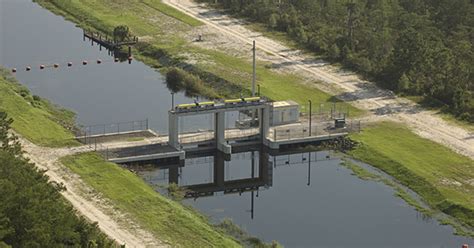Florida's Water Management: Human Solutions to a Complex Ecosystem
Florida's unique ecosystem, characterized by its intricate network of rivers, springs, wetlands, and coastal areas, faces significant water management challenges. Decades of development, population growth, and climate change have strained the delicate balance, impacting water quality, availability, and the overall health of the environment. This article explores the human-driven solutions being implemented to address these complex issues.
What are the major water challenges facing Florida?
Florida's water challenges are multifaceted and interconnected. They include:
-
Over-extraction of groundwater: Rapid population growth has led to increased demand for potable water, resulting in the over-extraction of groundwater, causing saltwater intrusion in coastal areas and land subsidence.
-
Nutrient pollution: Runoff from agriculture, urban areas, and septic systems introduces excessive nutrients (nitrogen and phosphorus) into waterways, fueling harmful algal blooms that devastate aquatic life and harm human health.
-
Sea level rise: Climate change is causing sea level rise, exacerbating saltwater intrusion and threatening coastal communities and ecosystems.
-
Water scarcity: Periods of drought highlight the vulnerability of Florida's water resources, particularly in areas with high population density.
-
Loss of wetlands: Wetlands play a crucial role in water filtration and flood control. Their loss due to development significantly reduces the natural capacity of the ecosystem to manage water effectively.
How is Florida addressing its water management issues?
Addressing Florida's water management challenges requires a multi-pronged approach involving technological advancements, policy changes, and public awareness campaigns. Key strategies include:
Investing in Water Reuse and Recycling Technologies:
Florida is exploring advanced water treatment technologies to reclaim wastewater for irrigation, industrial uses, and even potable water in some cases. This reduces reliance on groundwater and surface water sources.
Implementing stricter environmental regulations:
Strengthening regulations on agricultural runoff, urban stormwater management, and septic systems is crucial to reducing nutrient pollution. This involves implementing best management practices (BMPs) in agriculture and promoting the use of alternative septic systems.
Protecting and restoring wetlands:
Preserving and restoring wetlands is vital for maintaining the natural water filtration and flood control capabilities of the ecosystem. This involves land acquisition, habitat restoration projects, and strategic wetland management plans.
Developing sustainable water management plans:
Comprehensive water management plans are needed at the regional and state levels to balance the competing demands for water, ensure equitable distribution, and protect the environment. These plans must consider long-term projections for population growth and climate change.
Promoting water conservation:
Educating the public about water conservation practices is vital for reducing overall water consumption. This includes promoting water-efficient landscaping, appliances, and irrigation systems.
What role does public awareness play in Florida's water management?
Public awareness and engagement are essential to the success of any water management initiative. Educating the public about the importance of water conservation, the impacts of pollution, and the need for sustainable practices can drive behavioral changes and support for effective policies.
What is the future of Florida's water management?
The future of Florida's water management relies on continued innovation, collaboration, and a long-term perspective. This includes:
-
Investing in research and development: Further research is needed to develop more effective technologies for water treatment, desalination, and water reuse.
-
Strengthening inter-agency collaboration: Effective water management requires coordination between various state and federal agencies, as well as local governments and stakeholders.
-
Adapting to climate change: Water management plans must incorporate projections for future sea-level rise, increased frequency and intensity of storms, and changing precipitation patterns.
Florida's water future demands a concerted effort from all stakeholders. By combining technological innovation, effective policy, and public engagement, Florida can strive towards a more sustainable and resilient water management system that protects its unique environment for generations to come.

